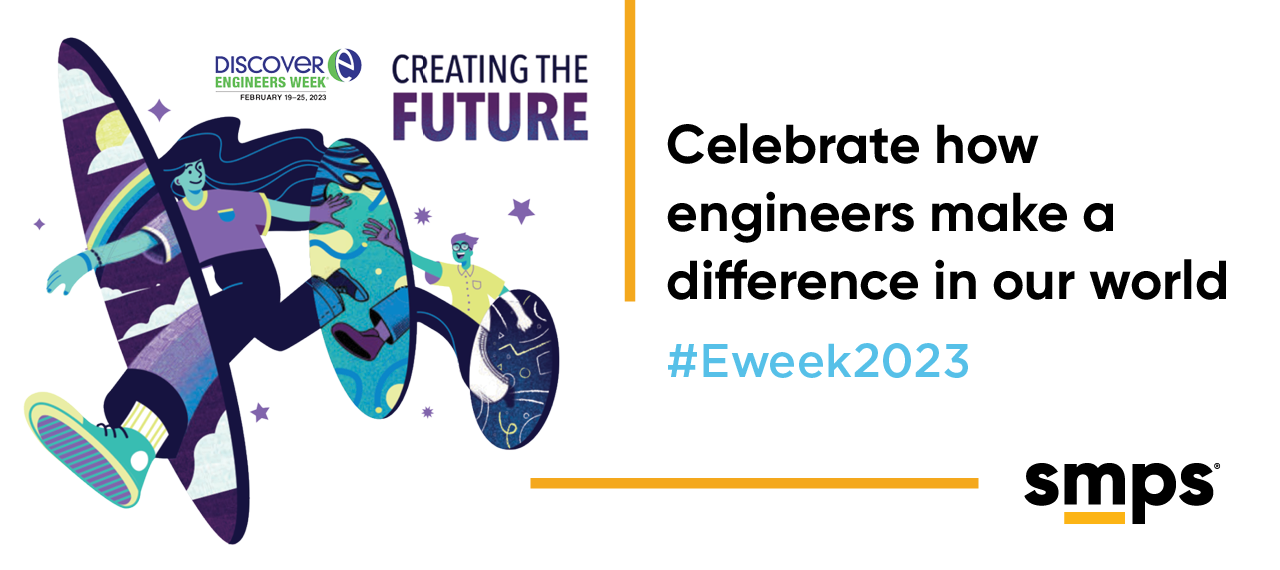
In honor of Engineers Week, Lynda Herrig, P.E., LEED AP, chatted with SMPS HQ. Lynda is a professional engineer and holds the position of associate partner, director of business development at Newcomb & Boyd. Lynda discusses why she became an engineer, her role in business development, and what engineers should consider when working with marketers and business developers.
You’re an engineer doing business development full time? Can you tell us briefly how you decided to make the transition to focus on BD?
I was asked to take on the business development role by the leadership at my company who wanted to try using a person with a technical background in that position.
How does being an engineer help you in your BD role at your engineering firm?
Engineering studies teach you how to solve problems in a methodical and oftentimes iterative way. You have to organize knowns and unknowns and work a plan to arrive at some solution. In our business development work, we are continuously iterating—revising and trying again and getting closer to our goals.
Why did you choose to become an engineer?
The most unromantic reason ever: there was a recession and the only jobs available were in engineering and most of those were in mechanical engineering. I wanted a job.
How did your engineering degree impact your ability to be successful at business development?
There were so many times in my engineering studies that I could not see a way to solve a problem, but I learned to trust the process and to be patient with trying out steps and failing and trying other steps. That kind of thinking informs the development of our strategic goals as well as our tactical initiatives.
What education or professional development, if any, helped in your current role?
There was an SMPS course called BD for Technical Professionals: A Seller-Doer Workshop that I took early on. That was hugely helpful in giving me a vocabulary and framework. The leadership in my company also hired an A/E/C marketing firm to provide coaching for me. That was when I learned I wasn’t supposed to sit at my desk and look at my computer. Networking with my peers from SMPS has been the other way I have learned. They’ve showed me the ropes over and over.
What skills are important if you have a technical background/degree and want to get into marketing or business development?
You have to learn the vocabulary. SMPS is very good at teaching the framework, even just understanding what business development is and how it’s different from marketing but goes together with it. Those of us with technical backgrounds understand the rhythm of a project and how to plan a schedule and meet it with the right deliverables. It’s important to learn how all that translates in the BD world. Just watching my industry peers who are really good at what they do is one of the best ways to learn.
Having strong working relationships is crucial. What’s one thing you’d like marketers and business developers to consider when working with engineers on a project?
Most of the engineers I know care deeply about their work and love to talk about the details of their projects. There are great stories in those details; you just have to listen.
And what should engineers consider when working with marketers and business developers?
Remember to share the background. I always love to learn why a project was built. Was it for cancer research or to make it easy on families with sick children to see all their doctors? Was it a place for returning soldiers to rest and recuperate before going home?
This year’s Engineers Week’s theme is Creating the Future? When you hear that term, what does it mean to you?
Our company is celebrating 100 years this year, and in putting together a brief firm history, I was struck by how many times the leaders saw a need and learned to meet those challenges. There was some innovation in nearly every decade, while navigating through economic ups and downs. In the built environment, we are developing a path to decarbonization as we shape the future.
In what ways do engineers make a difference in society?
Remember that scene in Apollo 13 when the engineers had to make the square filter fit the round hole by using the items on the lunar and command modules? If they didn’t make it work, the astronauts would perish from too much carbon dioxide. Engineers take what is available and put it to the best use, meeting needs and transforming lives.
Learn more about Engineers Week, taking place this year from February 19–25. Discover downloadable resources and how this year’s theme, Create the Future, can help inspire and impact future generations.







